Science in a wine glass
2025
Apr
25
On 23 April, a consortium of the Research Institute of Viticulture and Enology of the University of Pécs (SZBKI) and Varga Winery concluded a joint research and development project in Pécs, which resulted in new disease-resistant grape varieties and high added value wine products. The innovative wines and cultivation technologies created during the project will be used not only in the domestic market but also on the international market - in a more sustainable and environmentally friendly way.

If the vine knew the proverb "better safe than sorry", it would certainly choose the Balaton Highlands as its new home. This is where new grape varieties have been born that are not afraid of mildew or peronospora - because they simply don't have to be. They are resistant. And not just to disease, but also to the challenges of the wine market.
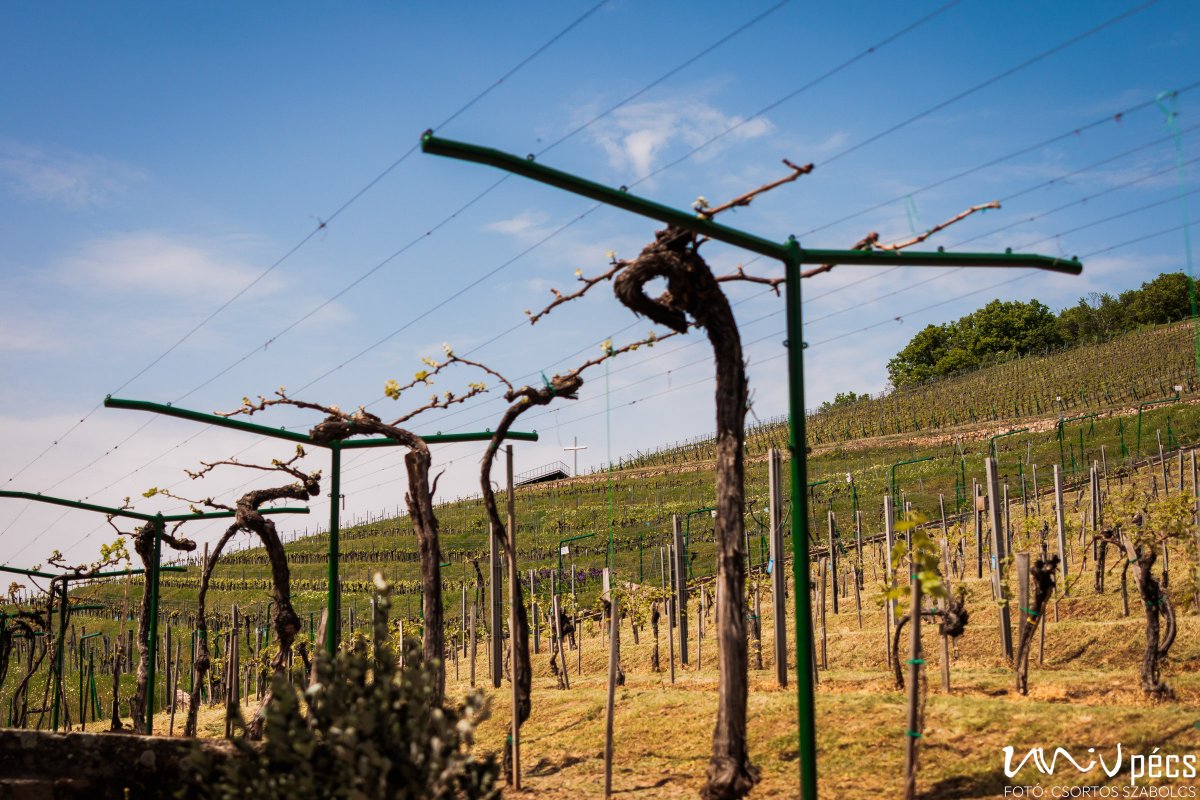
The aim of the joint project was not only to create new varieties, but also to develop customised winemaking technologies. The wines made from these new varieties are already well established on the international market:
the Jasmine white wine, the Irsai Oliver-Jasmine blend, the Pinot Regina rosé and the Merlin-Merlot red wine
were not only presented at the event, but were also available for tasting.
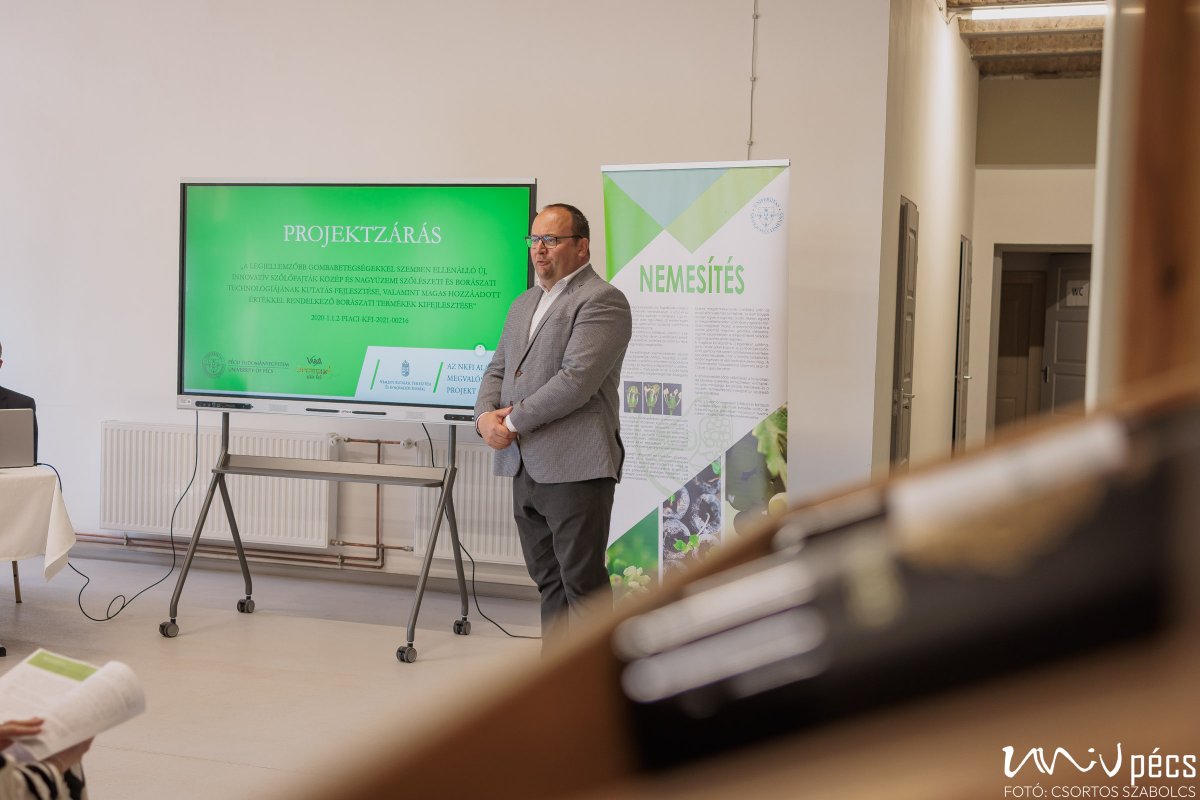
"This project was more than just research - it was a team effort, where laboratory measurements and vineyard work together wrote the story. The collaboration doesn't end there -
this is just the beginning."
- said Zoltán Madaras, President of PTE SZBKI.
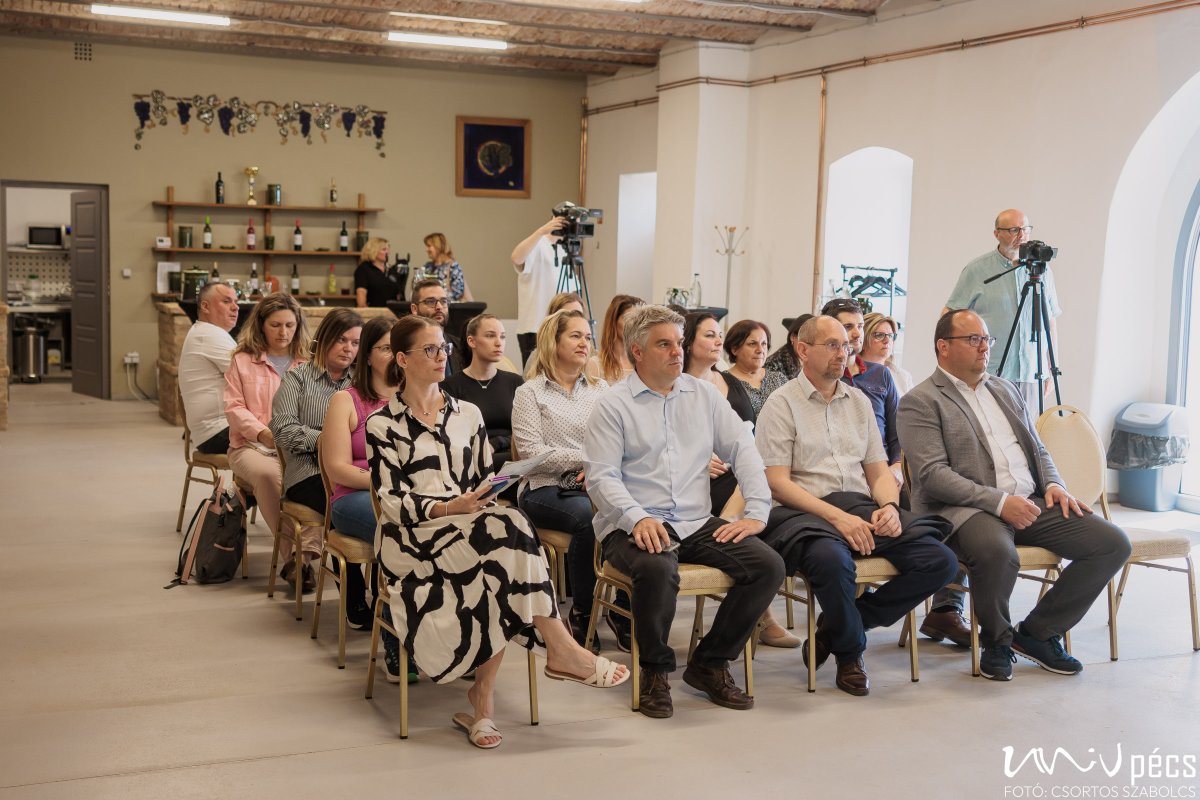
At the event, Dr. Péter Teszlák, Research Director of SZBKI, stressed that "it can take 10-15 years for a grape variety to be born. It is not a sprint, it is a marathon. But the real question is not how long it takes, but what kind of future we are building with it."

The winemaking work alternated between laboratory measurements and sensory tastings - week after week, thematically and scientifically rigorous.
"Grape varieties are like people.
We need to get to know them to get the best out of them," said István Ipacs Szabó, head winemaker at SZBKI.
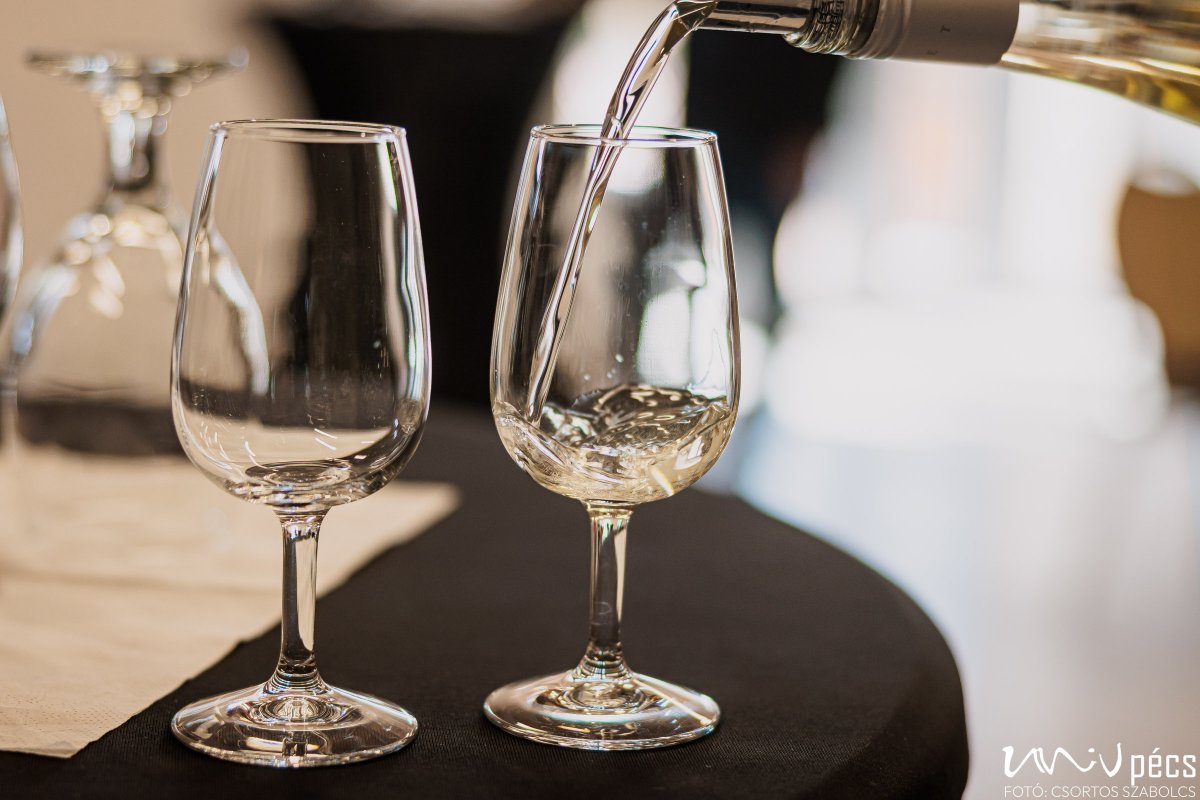
One of the most important results of the project is that
the amount of pesticides used in the cultivation of new varieties can be reduced by up to 80-90 percent.
This not only reduces costs for growers, but also the environmental impact - less chemicals, lower fuel consumption, more conscious farming.

"The example of the Bianka grape shows the potential of resistant varieties," said Gábor Csiszkó, managing director of Varga Winery. "The goal now is to make these new varieties known not only in professional circles, but also in the glasses of wine consumers."
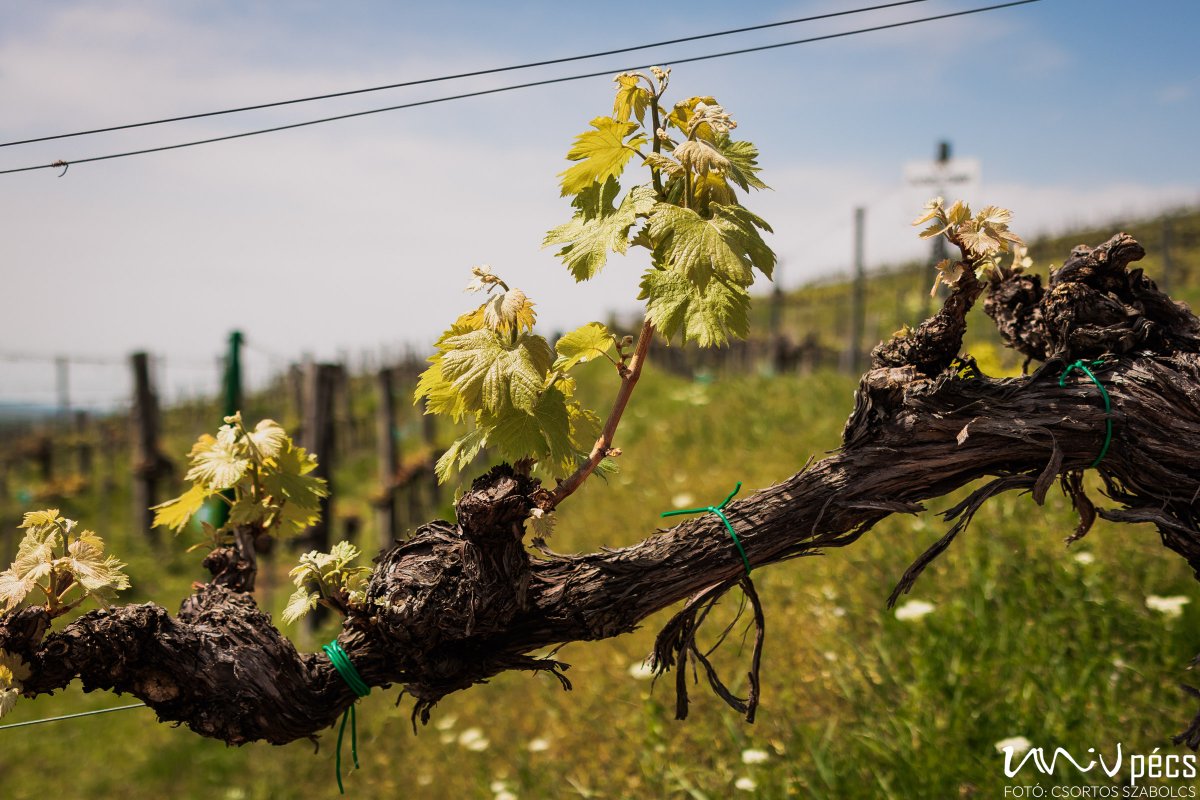
The project is over, but the collaboration is not: according to the participants, this is just the first step on a long-term innovation journey. The goal: a more sustainable, more competitive, greener winery - which may not be that far away.
Written by Mercédesz Kovács-Csincsák
- Log in to post comments
University of Pécs | Chancellery | IT Directorate | Portal group - 2020.
















